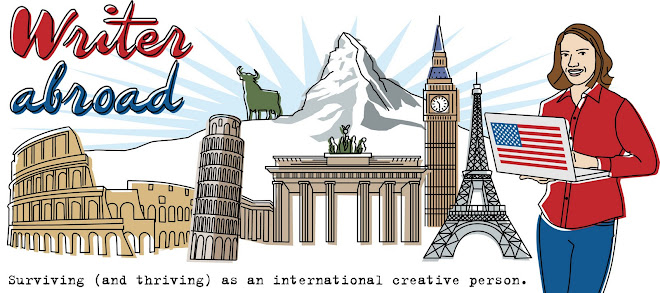
About two years ago, three American writers living in Zurich decided Switzerland's largest city needed to offer more than expensive shops, rule-abiding citizens, and overpriced sodas. After long lamenting that other European cities were much more desirable for writers abroad–like Paris or even Geneva (who already had an established writing group and conference), we decided to stop complaining and start creating. The result was the
Zurich Writers Workshop, which is offering its third writing conference in May.
What has Writer Abroad learned from it all? Sometimes, if you want something, you have to do it yourself. Here are a few tips to help you start your own writing conference.
1.
Get advice from someone who has done it before. We were blessed with advice from Susan Tiberghien, the founder of the
Geneva Writers' Group, who answered many of our questions via email. Things you will want to know include the going rates for guest writers, how to know what to charge attendees, how payments are taken, what to look for in a venue location, and more.
2. If possible, team up with writers who have diverse skills and contacts. Writer Abroad was lucky to have Kelly Jarosz and Emily Lacika as her two co-founders. Kelly had a background in event planning, Emily had our first author contact, and Writer Abroad had magazine contacts and an advertising background. You also want to team up with people who are concerned workaholics–you know the type–the total suckers who took responsibility for every single group project during college while their teammates were at the bar.
3. Be prepared to take a financial risk. It doesn't have to be a huge one, but if you want to plan a conference, there are upfront costs like room rentals, travel expenses for authors, and more. You just have to trust that something you think is worthy is something others will think is worthy as well.
4. If you have contacts, use them. Do you know an author who would willingly give a workshop? Do you know someone at a magazine who would give you free ad space? Do you know an art director who would design your ad? Do you have a friend (or a spouse) who can help you manage a mailing list when it stops working? Like most things in life, it's who you know that will help your conference become a success.
5. Plan what you want. It's ok to be selfish. After all, if you're like us, a lot of time, energy, and financial risk goes into planning a conference. So you might as well invite the authors you admire and have them present on the topics that are interesting to you. Again, you have to trust that something you are interested in is something others are interested in as well.
6. But be reasonable too. Hopefully you have authors you like who are also somewhat local. At each of our conferences, because we pay the travel expenses of our authors and like to keep costs reasonable for attendees, we are usually limited to inviting two writers: one living in Switzerland and one living somewhere in Europe.
7. Be open to feedback. At the conclusion of your conference, be sure to bask in its success. But also be sure to hand out evaluation forms. That way, you can improve the conference for next time.
Anyone else have advice for planning a writing conference? Or more questions about starting one?


